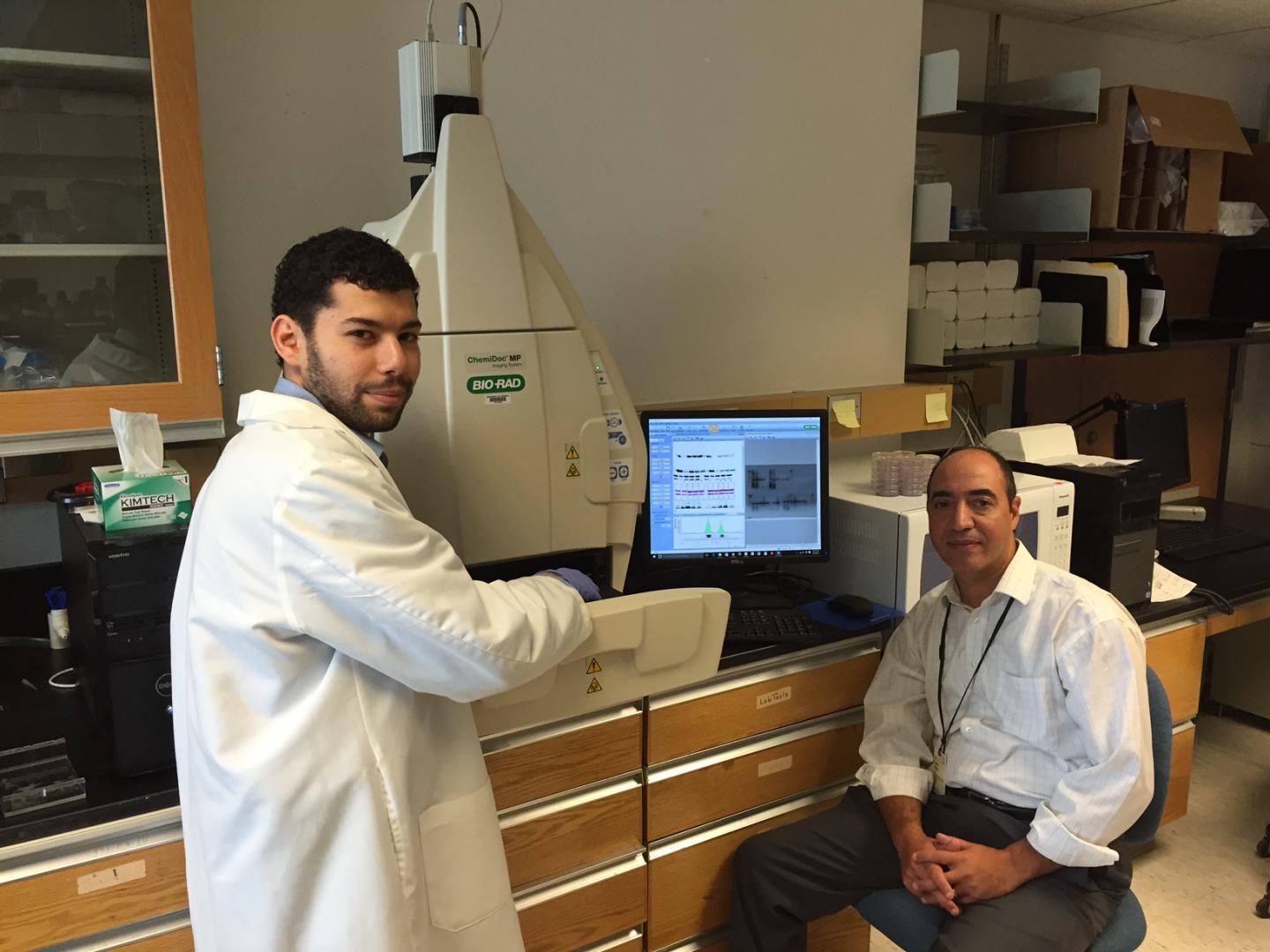
CREDIT
Josh Barney | UVA Health System
May even work on melanomas that have resisted treatment
An experimental cancer drug works differently than intended and shows significant promise for stopping melanoma and possibly other forms of cancer, research from the University of Virginia School of Medicine suggests. The findings also indicate the drug may be effective against melanomas that have resisted other forms of treatment.
The drug, pevonedistat, is already being tested in people. Scientists have been uncertain exactly how it kills cancer cells, as it shuts down many different cellular proteins – hundreds if not thousands. But the UVA researchers, led by Tarek Abbas, PhD, of the Department of Radiation Oncology and the UVA Cancer Center, have determined that the drug acts upon a particular protein that melanomas and other cancers rely on to replicate with great speed and deadly effect. By denying the cancers this essential ingredient, doctors may be able to stop melanomas and other forms of the disease.
“We think that this is what lets the cancer cells cope with the amount of replication they must undergo,” Abbas said. “They divide in uncontrolled fashion, and those cells that divide faster and more frequently are under tremendous replication stress, so these cancer cells needed to be able to develop a way to cope with that.”
Battling Melanoma
The critical protein blocked by pevonedistat is produced by the gene CDT2, and it is vital for malignant cancer cells to survive. Without it, the cells stop replicating and begin to fall apart. “We have great understanding now for how the drug works,” Abbas said. “And we think the drug works not because of its intended target, but rather because it works on [the CDT2 protein] way downstream of that.”
Excessive amounts of the protein are produced in melanoma cells, and patients with high levels of it are less likely to survive. “These tumors, and not necessarily just melanoma, they are addicted to this gene,” Abbas said. “And that makes them very susceptible to the drug. In fact, we showed, that melanoma cells that have higher levels of expression of CDT2 are much more susceptible to the drug.”
High levels of the CDT2 protein are also found in many other tumors, he noted, including brain, breast and liver tumors. Doctors may one day use the level of the protein as a way to gauge disease prognosis.
‘We Have Great Hope’
The safety and effectiveness of pevonedistat in people is still being tested, and it is not yet available as a treatment. But Abbas, who has not been involved in the drug’s testing, is optimistic based on his findings. “We have great hope that this drug will have very significant impact on melanoma in general. … In fact, the drug is very effective on all melanomas, including those for which an effective therapeutic is lacking,” he said. “We actually show this drug can work on melanoma that resisted treatment, which is a major challenge in melanoma therapy. … If approved by the FDA and it moves forward, this drug could potentially be a good second-line therapy for those patients that fail initial treatment.”
Learn more: Experimental drug could stop melanoma, other cancers, research suggests
The Latest on: Pevonedistat
[google_news title=”” keyword=”pevonedistat” num_posts=”10″ blurb_length=”0″ show_thumb=”left”]
via Google News
The Latest on: Pevonedistat
- Sister Cells Reveal Cancer’s Fateon April 2, 2024 at 4:59 pm
2 By doing so, the added drug could prime the cells to respond to cancer treatment. Using computational models, the researchers predicted that administering pevonedistat—a drug that inhibits an enzyme ...
via Bing News










